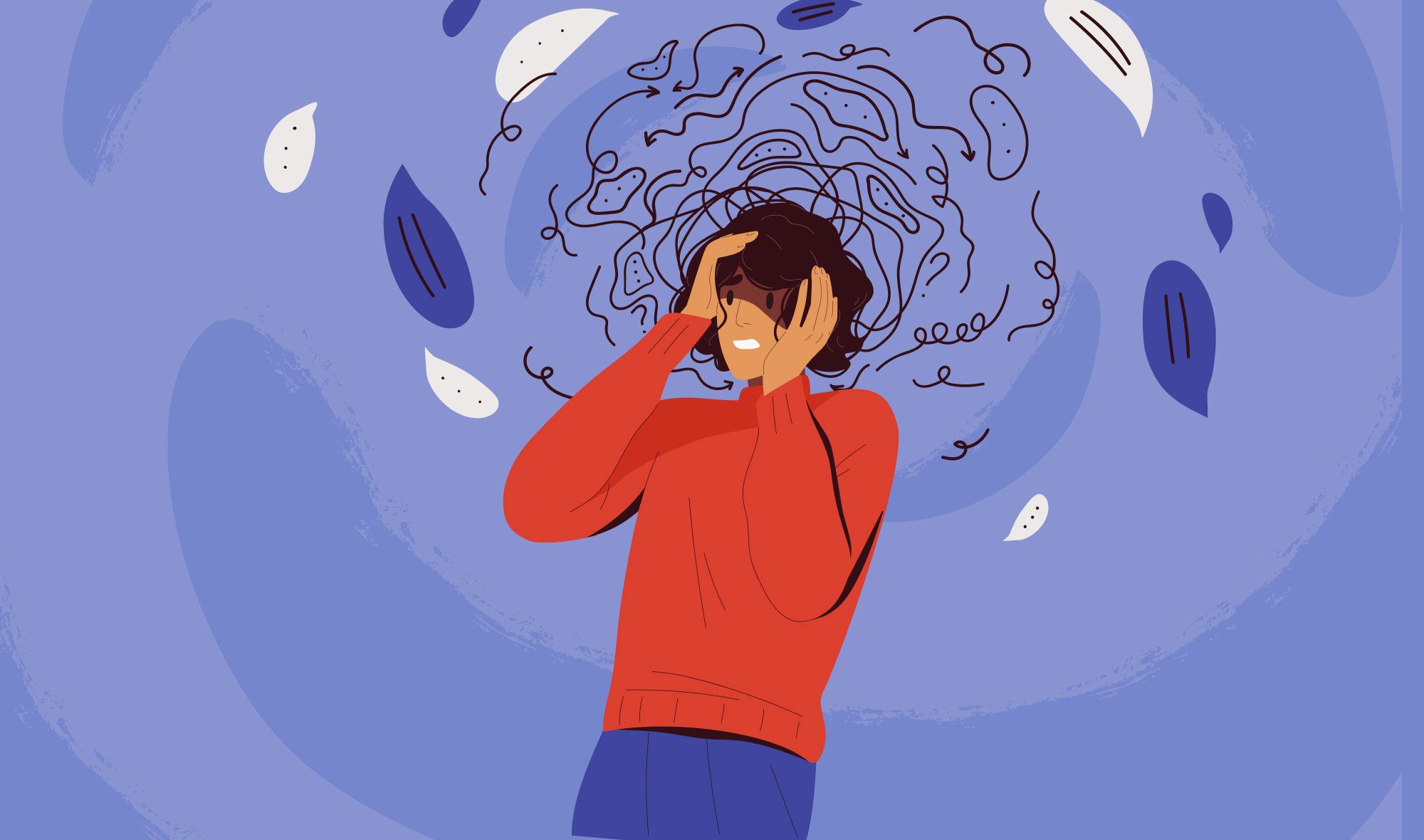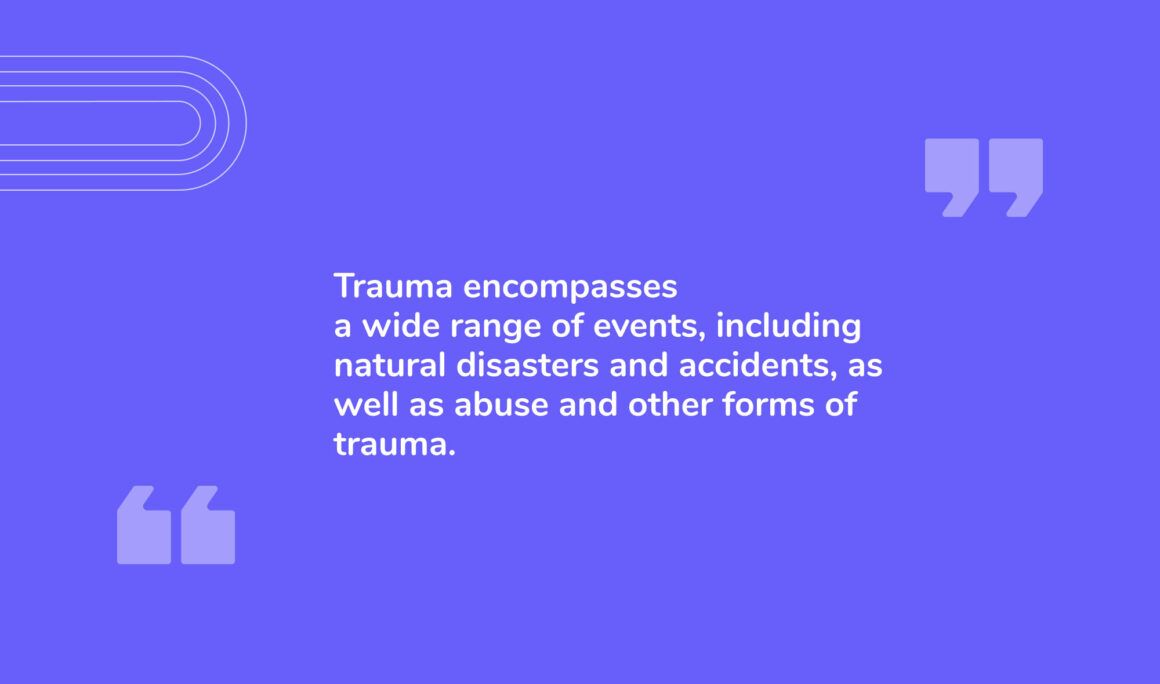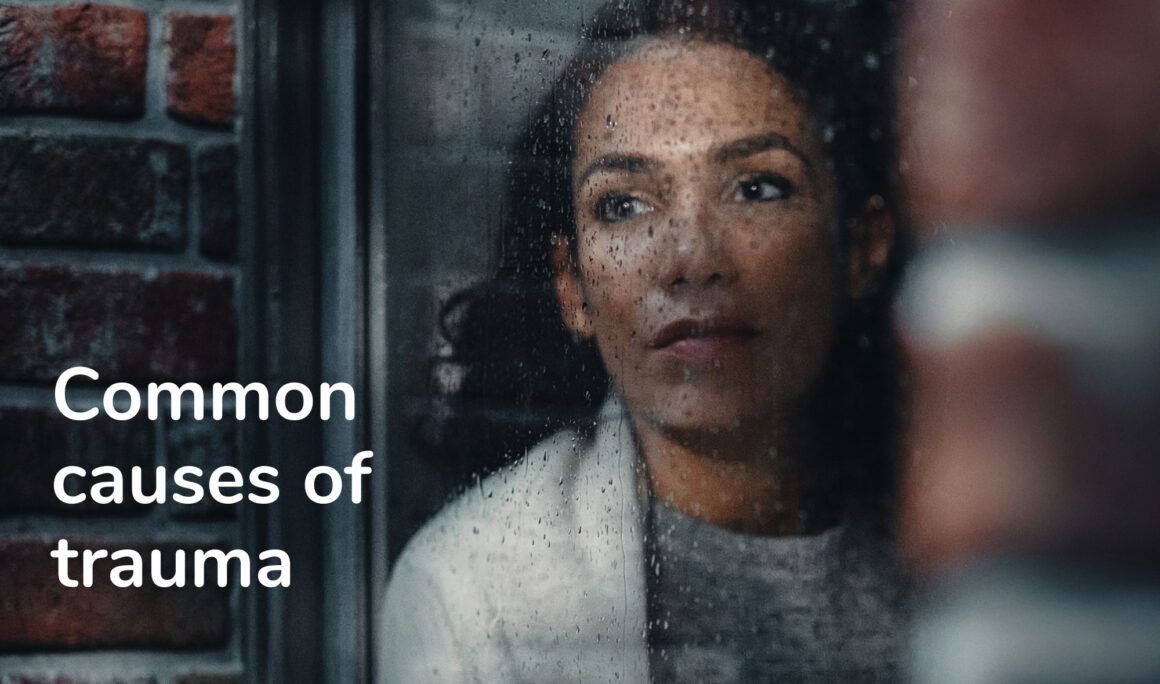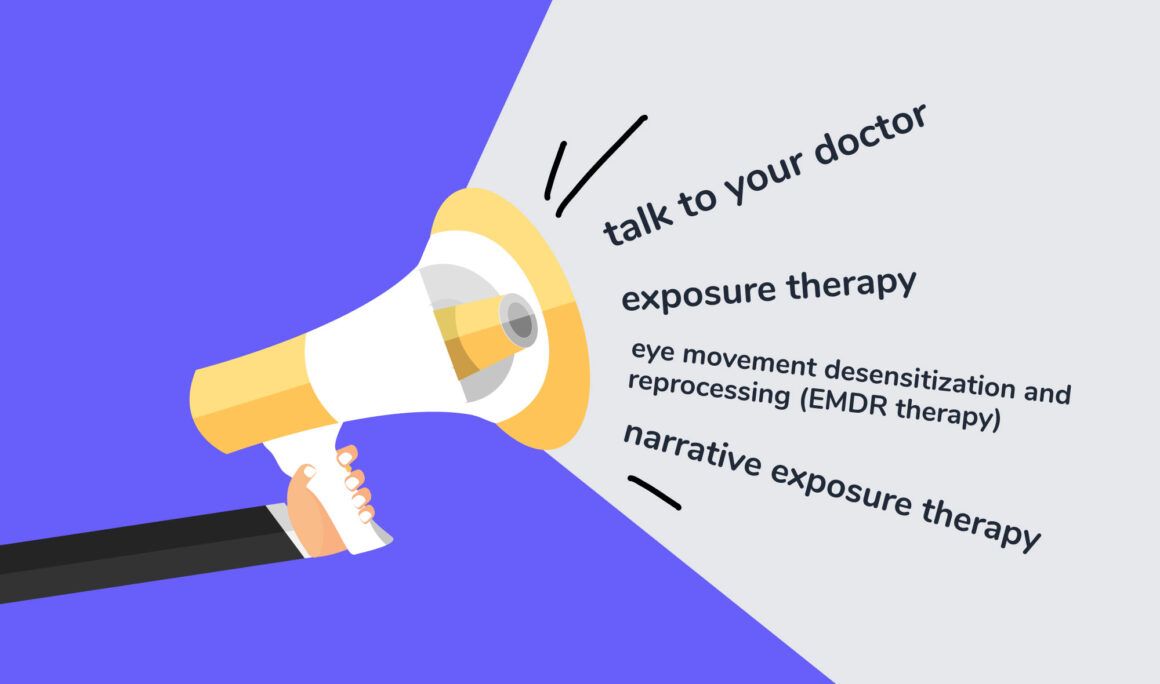What is considered trauma? types, symptoms, and treatments
By Julian Lewis • January 5, 2023

Statistically, trauma is a very common disorder. In the United States alone, there are 10 million people with PTSD and another 8-10 million who have other types of trauma disorders.
Distressing events or experiences can have lasting effects on an individual's mental, emotional, and physical well-being, and the trauma symptoms they produce can be caused by a wide range of events, including physical or sexual abuse, natural disasters, car accidents, and other life-threatening situations.
Trauma can also manifest in a variety of ways, having a profound impact on an individual's daily life. In this article, we will explore the different types of trauma, the symptoms it can cause, and the treatments that are available.
Join our Newsletter
Transform your career with our personal growth insights. Get one valuable tip right in your inbox every Saturday morning.
Tell me the definition of trauma.

According to the National Center for PTSD, trauma is defined as "the emotional response to an extremely stressful event or series of events that overwhelms a person's usual coping mechanisms."
Some types of trauma are relatively common, such as the death of a loved one or experiencing a serious illness or injury. Other types may be less common, such as being the victim of sexual assault or experiencing a natural disaster, but can be equally as damaging and traumatic.
It is important to note that what constitutes a traumatic event can vary greatly from person to person, and the effects of trauma can be long-lasting and far-reaching. Regardless of the type of trauma experienced, its impact on an individual's mental health and functioning is usually significant.
What is emotional and psychological trauma?
Emotional and psychological trauma are often used interchangeably to refer to the distressing effects of a traumatic event or experience. However, there are some subtle differences between the two terms.
Emotional trauma refers to the emotional wounds or injuries that result from one or multiple traumatic events. It can manifest in a variety of ways, including through intense emotions such as fear, anger, and shame.
Psychological trauma, on the other hand, refers to the psychological damage that can occur as a result of traumatic events. Experiencing trauma psychologically can include symptoms such as flashbacks, anxiety, and depression.
While emotional and psychological trauma is closely related, it can affect an individual in different ways and may require different approaches to treatment.
Common causes of trauma

Trauma encompasses a wide range of events, including natural disasters and accidents, as well as accidents and other forms of trauma. Trauma can also be the result of witnessing or being exposed to violence, emotional abuse, childhood neglect, or other forms of harm.
Childhood trauma and the risk of future trauma
Childhood trauma refers to traumatic events that occurred during childhood, such as physical or sexual abuse, neglect, or exposure to violence. These experiences can have a profound impact on a child's development and can lead to long-term emotional and psychological effects, as well as involuntary physical responses within their nervous system.
Children who have gone through trauma may experience symptoms such as anxiety, depression, and post-traumatic stress disorder (PTSD), and may also have difficulty forming healthy relationships and managing their emotions.
Childhood trauma can also increase the risk of complex trauma involving substances. For example, many children who have struggled with traumatic memories are more likely to engage in risky behaviors, such as drug or alcohol use, which can put them at risk for further trauma and their spouse and/or children at risk for secondary trauma.
Additionally, research has shown that individuals who have experienced trauma in childhood are more likely to experience trauma again in adulthood. This may be due, in part, to a lack of resilience and coping skills that can be developed through healthy relationships and support. It is important for individuals who have experienced childhood trauma to seek professional help and support in order to reduce the risk of mental health problems and future trauma.
Join our Newsletter
Transform your career with our personal growth insights. Get one valuable tip right in your inbox every Saturday morning.
Sudden or violent death in your life
The sudden or violent death of a loved one can be a traumatic experience that can have lasting effects on an individual's mental, emotional, and physical well-being. This type of trauma can be caused by a wide range of events, including mass shootings or terrorist attacks, car accidents, and suicides. The sudden and unexpected nature of the loss can make it difficult for an individual to process and cope with the emotions that arise.
Symptoms of trauma caused by a sudden or violent death can include shock, disbelief, and intense grief. These emotions can manifest as physical symptoms, such as headaches, stomachaches, and trouble sleeping. In the long term, an individual may struggle with posttraumatic stress disorder (PTSD), which can cause flashbacks, nightmares, and avoidance of triggers that remind them of the loss. The individual may also struggle with feelings of guilt, anger, and hopelessness.
Being physically attacked or assaulted
Did you know that about 8% of the population in America is a victim of physical assault or violent crime every year? This means that if you have 30 people at your party, chances are there will be 2 or 3 who have been physically attacked this year.
Physical assault and violent crime can lead to significant trauma that affects the victim both physically and psychologically. Victims of physical attack or community violence often feel scared, powerless, and overwhelmed by the experience, leading to trauma symptoms such as nightmares, difficulty sleeping, lack of concentration, hypersensitivity to loud noises or physical contact, elevated heart rate or breathing when reminded of the incident, and avoidance of people, places, or situations that are associated with the attack.
Witnessing domestic abuse or violence
Similarly, witnessing domestic violence with family or friends is a very disturbing event, especially for many children who may not understand what is happening and may feel scared, confused, or powerless to help. Some symptoms that can arise as a result of witnessing physical harm include nightmares, difficulty sleeping, diminished appetite, isolation from others, anger, and aggression.
Individuals who have experienced trauma such as physical assault or domestic abuse may find it helpful to seek professional support in order to reduce the risk of acute trauma and improve their ability to cope with the emotions and feelings that arise. Trauma-focused therapy, peer support groups, counseling, and other forms of professional support from a therapist may help individuals work through their feelings, cope with flashbacks and nightmares, develop better coping skills, and heal from the experience.
Being in an accident or natural disaster
Being involved in an accident or natural disaster can be a terrifying and overwhelming experience. Oftentimes, people do not know how to cope with the aftermath and can struggle for months or years after the event. Individuals who have been impacted by a disaster or accident may experience a range of symptoms including shock, numbness, and PTSD.
Breaking the Cycle of Trauma

While there is no single "cure" for trauma, treatment options such as psychotherapy and medication can help both children and adults manage their symptoms and regain control over their lives in just a few weeks.
Trauma is a difficult and complex issue that can affect an individual in many ways. Often, people who have experienced trauma struggle with a constant state of symptoms and feelings that can be debilitating and make it nearly impossible to get on with their daily lives.
Despite the challenges associated with trauma, it is possible to break the cycle of trauma and regain control over your life. Start with these three easy tips:
Don't isolate yourself
Avoiding both people and activities that you enjoy can make things worse. Instead, seek out social engagement with or the support of a therapist who can help you work through your feelings and learn to cope with your trauma.
Online communities are another viable option if you are struggling with social anxiety and do not have many close friends nearby. These communities can act as valuable support groups and help you connect with others who have similar experiences and struggles.
Get moving
Exercise has been shown to help reduce symptoms of both anxiety and depression, two common side effects of multiple traumatic events. Even a short walk or yoga session can do wonders for your well-being, so make it a point to get moving every day.
One form of exercise that has helped trauma survivors work through their feelings and PTSD symptoms is kickboxing. This high-intensity activity can help you channel your emotions, reduce stress, and improve your overall mental health, making it easier to cope with the aftermath of trauma.
Take care of your health
Finally, take good care of yourself by eating a healthy diet and getting plenty of rest. Other examples could include incorporating relaxation techniques such as meditation, mindful breathing, or massage.
With the right support, tools, and coping strategies, you can overcome your experience, get back on track and reclaim control over your life.
Treatment for trauma

If you or someone you know is struggling with symptoms of trauma, remember that it is never too late to seek help. There are a number of effective treatments available that can help you manage the symptoms and regain control of your life.
The first step of the recovery process is to talk to your doctor or mental health professional about your experience and what symptoms you are experiencing. From there, you may be prescribed medication or referred to one of the many group therapy options for trauma treatment. Some of the most common trauma therapy options include cognitive behavioral therapy (CBT), exposure therapy, eye movement desensitization and reprocessing (EMDR therapy), and narrative exposure therapy.
Each type of treatment has its own strengths and weaknesses, so it is important to work with a mental health professional who can help you determine which treatment is best suited to your individual needs. With the help of a qualified therapist, you can manage the symptoms of trauma and regain control of your life.
When to seek professional therapy for trauma?
There are a number of signs that can help you determine whether it is time to seek professional treatment for trauma for yourself or your children. Some of these include feeling disconnected from your emotions, experiencing flashbacks and intrusive memories, avoiding people and situations associated with the traumatic event, self-harming behaviors such as drug use, and feeling hopeless about the future.
When seeking support for trauma-related symptoms, it is important to find mental health professionals who have experience working with trauma victims and understand the unique challenges involved in helping individuals recover from traumatic experiences. Additionally, this therapist should be someone that you feel comfortable talking to and can trust.
Leela R. Magavi, MD
Leela R. Magavi, MD is a highly respected and experienced mental health expert who specializes in helping trauma survivors regain control of their lives. She is an Assistant Professor at the University of Miami's Miller School of Medicine, where she has served since 2017.
Dr. Magavi’s areas of expertise include cognitive behavioral therapy (CBT), exposure therapy, eye movement desensitization and reprocessing (EMDR), and narrative exposure therapy. She has worked with a variety of clients, including veterans, victims of abuse, and individuals affected by life-threatening illnesses or injuries.
Gayani DeSilva, MD
Dr. Gayani DeSilva was inspired to become a doctor at an early age by her parents and extended family members who were already in the medical profession. Growing up, she was surrounded by conversations about healthcare and scientific breakthroughs, which sparked her curiosity and ultimately led her to pursue a career in medicine. She studied hard, achieved top grades, and earned a place at one of the top medical schools in the world.
Dr. DeSilva specializes in therapy and counseling for patients with mental health issues, such as depression and anxiety. Her goal is to help these patients find balance and overcome their struggles in order to lead happy and healthy lives. Thanks to her years of experience, Dr. DeSilva is able to work effectively with a wide range of patients, from children and adolescents to adults and seniors.
What is Trauma-Focused Psychotherapy?
Trauma-Focused Psychotherapy is a type of therapy that helps individuals who have experienced a traumatic event. This type of therapy is designed to help individuals process and understand their thoughts and feelings related to the traumatic event. It can be very effective in helping people experience trauma memories in a productive way and move on from them to improve their overall mental health.
One example of a leading expert in trauma-focused psychotherapy is Dr. Mary Davis, a psychologist, and researcher at the University of Pennsylvania. Dr. Davis has published numerous articles on this type of therapy and its effectiveness in helping individuals manage their emotions and cognitive responses related to trauma. She is widely regarded as one of the top authorities on this topic, and her work has helped many people recover from traumatic experiences.
Conclusion
Trauma is a very serious matter that should be dealt with delicately. It can affect people in different ways and the symptoms may not always be immediately apparent. Trauma victims often need time and space to deal with their experiences before they are able to seek help.
The treatments available for trauma victims are varied and should be tailored to the individual's specific needs. Counseling, medication, and trauma-focused therapy are all options that may help trauma victims recover from their experiences.
If you are struggling with trauma, remember that it is not an insurmountable obstacle. There are plenty of ways to help you manage your symptoms and live a happier, healthier life. With time, patience, and the right plan, you will be able to overcome your trauma and reclaim your life.
Related topics:

Read more about: Life Coaching, Existential Crisis
About Julian Lewis
Julian Lewis is a driven and accomplished professional with a passion for driving positive change in the business world. He is the co-founder and COO at Zella Life.
His own experience as a professional of color in a Fortune 500 company led him to discover the limitations for advancement that many professionals like himself face. Determined to reach his full potential, Julian became an established business coach and entrepreneur, committed to supporting others in their pursuit of personal and professional growth.
Today, Julian is a recognized corporate trainer, coach, and leader, known for his ability to leverage real-life experiences and evidence-based methodologies to affect positive change within individuals and organizations. As the leader of Zella Life's coaching division, he is dedicated to empowering individuals and businesses to achieve their full potential.